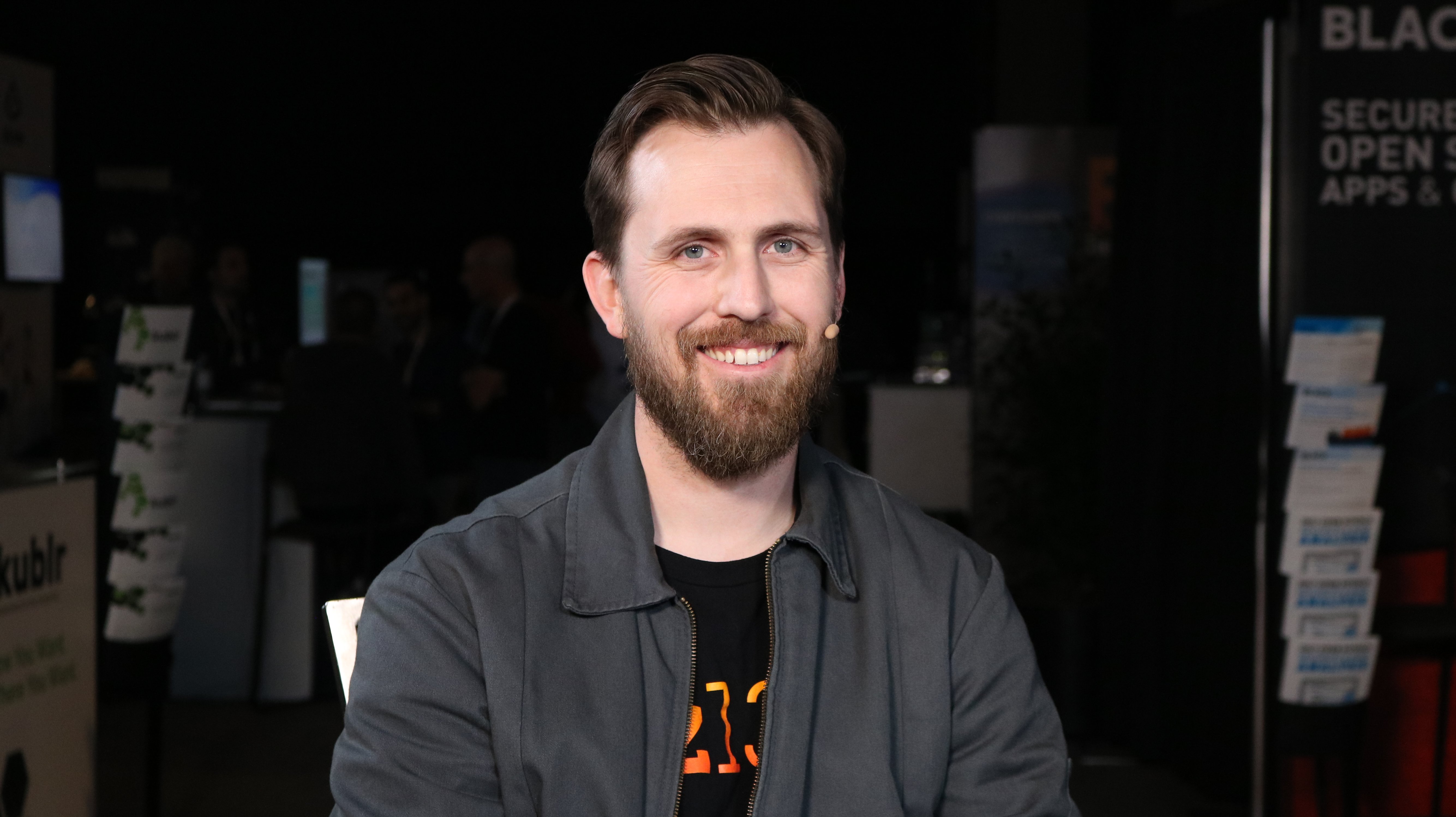 CLOUD
CLOUD
 CLOUD
CLOUD
 CLOUD
CLOUD
As day one of KubeCon 2017 came to an end yesterday, buzz around the pace and volume of progress in cloud migration seemed top of mind for speakers and attendees. Only in its second year, the convention has grown with the popularity of the Kubernetes container orchestration management system and attracted businesses in a range of industries looking for support in their digital transitions.
“Last year [there was] a lot of stuff that was still emerging and being discovered, and now everyone is in the middle of it and trying to learn as fast as they can to pick up these projects and see how to actually make this stuff production ready,” said Justin Garrison (@rothgar) (pictured), co-author of “Cloud Native Infrastructure: Patterns for Scalable Infrastructure and Applications in a Dynamic Environment.”
Garrison spoke with John Furrier (@furrier) and Stu Miniman (@stu), co-hosts of theCUBE, SiliconANGLE Media’s mobile livestreaming studio, during the KubeCon + CloudNativeCon event in Austin, Texas. They discussed the explosion in enterprise adoption of cloud technology and how Kubernetes is enabling developments across industries.
With two years of Kubernetes experience behind him, Garrison has seen huge advancements in both the platform and its use within business processes. “Now there’s more involved with Istio and these network proxies that they give you more resiliency in these cloud providers, because people don’t run their own infrastructure as much anymore,” he said. The more companies migrate applications to the cloud, the more they can focus on honing the applications that drive their business.
The challenge in moving away from owned infrastructure is that businesses remain responsible for outages or breaches regardless of ownership. To prevent against these issues, Garrison advised reinforcing applications through the cloud.
“You have to design for failure. … That layer of the infrastructure isn’t important, because you don’t run it anymore. But it is important to build a platform on top of that so your applications are still resilient,” he said.
Despite an obvious enthusiasm for Kubernetes as a platform, Garrison is steadfast that a quick transition into the cloud or partnership with a rapid innovator may not be suited for every business. “Kubernetes brings a lot that you can move from cloud to cloud, but really it’s about moving to a cloud provider that provides what your application needs and at the rate of innovation that you need,” he said. Industries under heavy regulation, for example, may find the pace of some providers inconducive to established processes.
For businesses that aren’t cloud-native, Garrison suggested starting a culture shift that works concurrently with digital transition. “Really it’s about people and processes. … Being able to change the culture of your environment and your applications — that’s important for the business,” he said.
Though the move to cloud remains characterized by a competitive pace, Garrison recommended a reasoned approach to ensure the appropriate choice for each individual business. “Everyone wants to move fast. … Know what the benefit is of your application and what environment it plays in,” he concluded.
Watch the complete video interview below, and be sure to check out more of SiliconANGLE’s and theCUBE’s coverage of the KubeCon + CloudNativeCon event.
THANK YOU